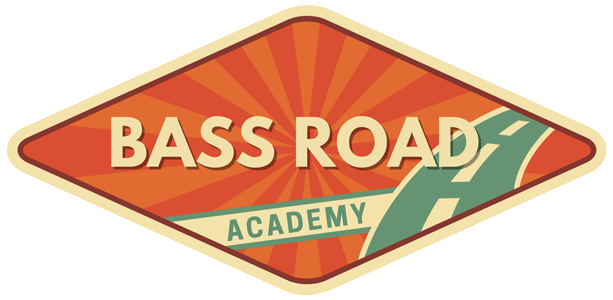Importance of Building a Repertoire on Bass
We have an important topic to talk about – it concerns your future as a bass player.

What I’ve noticed with many students is that too many people just don’t learn full songs.
This means that you end up not having a repertoire of songs to play after endless hours of practice.
It’s a bummer when you’re jamming with friends, and they ask you to play a song together that you’re supposed to know.
You know dozens of songs to play from start to maybe middle of it and then what….you just stop?
Being a bass player requires a lot of discipline, and why not start with building your repertoire.
Your job as a bass player is to play songs, regardless if you’re in a band or not – you need to have a repertoire.
Pick a song that you wish to learn and learn it for real.
You’ll notice that when you’re playing bass on stage, at gigs it’s equally essential to be able to play that special bass fill at the very ending of the song, as it is in the intro – either way you don’t want to mess up.
Even if you’re bored with learning the song, you should aim to learn it from beginning to finish.
As a gigging musician, you’re required to learn many songs on bass, usually in a short amount of time.
Not all of those songs will be your favorite ones for sure, yet you still need to learn them.
If you’re used to learning bass songs at home, from start to finish – then learning the setlist for the next gig will be a breeze.
Don’t loose focus too soon, you can do it.
Learn the song from start to finish and then you can just put on a playlist on Spofity.
Jam along until you can get through the song without making any mistakes.
Of course, you do need to pick a song that you can technically perform well or adapt the bass line to your level.
How many songs can you play?
Think about how many songs you can play from start to finish at the moment and then set up a playlist.
Are you happy with the number?
If your answer is no or the playlist doesn’t last for at least 2 hours, you should proceed to the next step.
Build your repertoire
My suggestion would be to always include time in your practice sessions to learn new songs.
If you’re not gigging at the moment, with everything that’s going around in the world, you probably aren’t – then it’s a perfect time to work on your repertoire.
Even if you’re not a gigging musician, you should be learning at least one new song per month – from start to finish.
Add each song you learn to your playlist and do a playthrough/concert performance bi-weekly.
Heck – why not stream this performance for your friends on social media, to make sure you take it seriously and simulate a gigging situation.
You see, taking these small steps like learning a single new song per month goes a long way.
Because in a year, you have 12 new songs for your repertoire.
Concerts by famous bands usually consist of up to 20 songs on the setlist.
Local club gigs usually require two blocks of 1.5h of performance, so that can be up to 40 songs for the night, not more than that.
Preparation matters
I’d like to write more about this in another post, but just wanted to mention it here as it’s relevant.
Being good at learning songs from start to finish was one thing that made me stand out in auditions.
It wasn’t my bass skills, instead it was the skill of learning songs for the audition from start to finish well.
It was knowing the band’s audition repertoire. Not trying to play songs half-assed like those other bassists who didn’t take it seriously.
Conclusion
Playing bass is so much more than technique, tone or music theory – it’s the mindset.
The bass player is a person the whole band depends on to be one they can lean on (after all – you’re holding keys to the entire low end). The one member who will keep the song chugging along when the guitarist’s pedals run out of juice or the keyboard player’s cable that connects him to PA dies.
Put in the hours, do a quality job in the practice room, building a repertoire and maintaining it regularly so that you stay in shape and don’t forget the lines.
It will be so worth it, I promise.
One of the prerequisites for having time to invest in playing songs and repertoire is of course having an efficient bass practice routine – no noodling allowed.
You need to have structured and efficient practice sessions so that you can work on your craft as well as get to enjoy it through playing music.
If you think your practice needs more structure, check out my online bass learning program called Bass Road where you get access to step-by-step courses: click here to learn more and become a member>>
